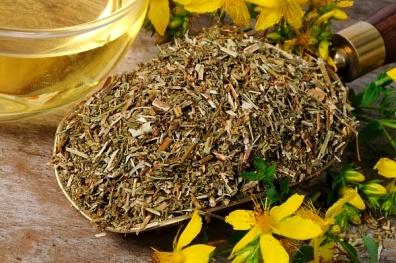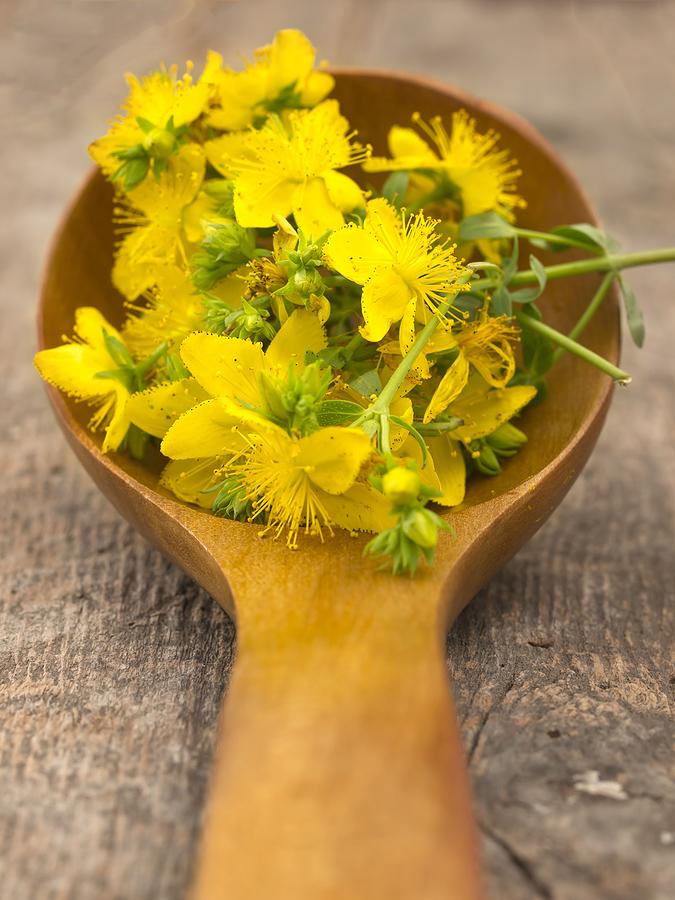“In the crumbling pages of ancient texts on healing, hidden amongst the dusty basement shelves of a neglected Old World library, there are stories of a flower whose tears are magical.” ~ Dr. Jonathan Zuess
History
The Greeks and Romans used Saint John’s Wort for treatment of melancholia, snake bites, cramping, upset stomach, and superficial wounds as far back as about 400 B.C.
Saint John’s Wort was named in the First century by early Christian’s after John the Baptist due to its blooming proximity to the saint’s day. They believed that the plant and flower aided in the ability to keep away evil.
Saint John’s Wort is particularly renown for its calming abilities.
Internal Uses
- depression
- anxiety
- tiredness
- loss of appetite
- menopause
- pms
- hemorrhoids
- trouble sleeping
- heart palpitations
- bed wetting/incontinence
- moodiness and other symptoms of menopause
- attention deficit-hyperactivity disorder (ADHD)
- obsessive-compulsive disorder (OCD)
- seasonal affective disorder (SAD).
- exhaustion
- fibromyalgia
- chronic fatique
- migraine
- muscle pain
- nerve pain
- irritable bowel
- cancer
- HIV/AIDS (to ease symptoms)
- Hepatitis C (to ease symptoms)
Topical Uses
- burns
- eczema
- wounds
- hemorrhoids
- muscle pain
Where to Get It
You can buy tea quality Saint John’s Wort here.
Preparation
Pour boiling water over and steep for 10-12 minutes. 1-2 teaspoons per 8 ounces of herb. Can be taken twice per day (per Cleveland Clinic).
To apply as a poultice, prepare as a tea, but only steep for 2 minutes. Cool slightly and rub a fine coating of sweet oil on the skin to prevent sticking, then apply the wort and wrap the injury. Or, you can create a Saint John’s Wort Oil Tincture.
Extras
For a fascinating read on Saint John’s Wort, visit Rhonda Nelson’s History of Saint John’s Wort
If you are interested in identifying Saint John’s Wort in the wild, visit Edible Wild Food here
ALWAYS consult your doctor if you have an ailment and before starting any treatments.
